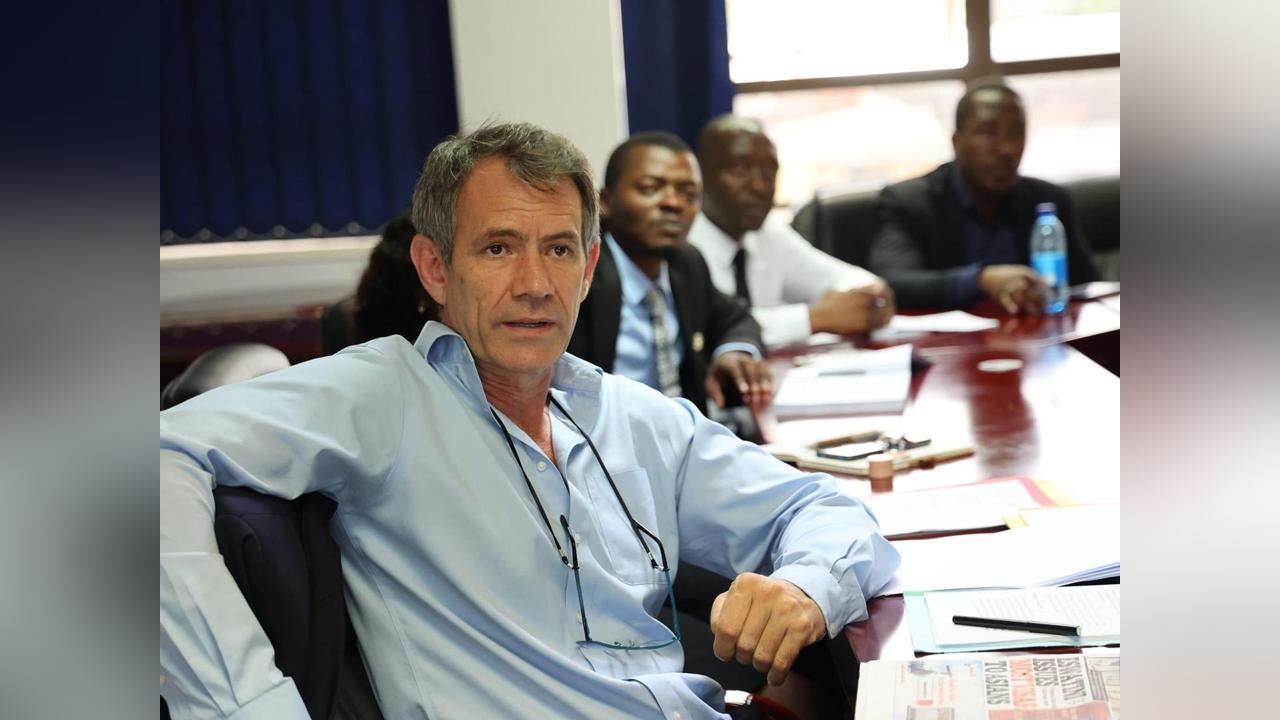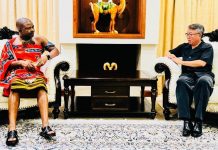Africa-Press – Eswatini. In a meeting attended by Minister of Finance Neal Rijkenberg, the African Development Bank Group’s (AfDB) announced an E1.2 trillion (equivalent to US$70 billion) increase in its financing capacity, a welcome development for Eswatini.
The African Development Bank (AfDB) held its annual meetings in Nairobi, Kenya this week.
According to the AfDB website, the announcement was made as the African Development Bank Group unveiled its new 10-Year Strategy 2024-2033, a blueprint to confront Africa’s pressing challenges and to help put the continent firmly back on track towards sustained economic growth and prosperity.
Unveiling the strategy during the meeting African Development Bank Group President Akinwumi Adesina said as Africa’s premier development finance institution, and Africa’s solutions bank, they were acutely aware that the next decade would be decisive in transforming the continent.
“As we celebrate 60 years of making a difference in the countries and lives of the people of Africa, we remain resolute in our determination to accelerate the support we provide to the African continent,” he said.
The AfDB plays a critical role in supporting development across Africa, and Eswatini is a prime example of this partnership in action.
The AfDB serves as a significant source of financing for major projects in Eswatini, specifically focusing on initiatives that drive the country’s development.
One such prominent project is the US$1.67 million Mkhondvo-Ngwavuma Water Augmentation Programme (MNWAP).
According to AfDB, this strategic development programme directly targets the attainment of Eswatini’s economic development goals.
The MNWAP aims to empower subsistence farmers on Swazi Nation Land (SNL) to transition towards commercial irrigated agriculture. It achieves this by providing essential water infrastructure and capacity-building programmes.
The bank also previously provided financing valued at US$62 million, for the installation of a new piping network, sprinkler systems and a reservoir which irrigates an estimated 11 000 hectares of land in the Lower Usuthu River Basin.
Trained
Farmers, too, were trained on environmentally responsible farming techniques provided by the Swaziland Water Agriculture Development Enterprise, according to the bank.
Minister Rikenberg participated as a panellist in a side event hosted by Moody’s rating agency during the meeting.
The side event tackled the complex issue of balancing immediate debt challenges with unlocking long-term economic potential in Sub-Saharan Africa (SSA).
The event aimed to equip African nations with the knowledge and strategies needed to navigate the complexities of the global financial landscape. Discussions focused on understanding the current environment as participants delved into the nuances of the international financial system, its impact on SSA countries, and emerging trends.
The discussion explored strategies for managing existing debt burdens while ensuring fiscal responsibility.
The event also addressed the various risks associated with financing development projects in Africa and how to mitigate them.
In his address, the minister outlined a strategic vision to leverage the continent’s hundreds of trillions of dollars in value from natural resources, land and assets to attract substantial private sector funding.
The minister emphasised the pivotal role that the bank can play in providing essential help and expertise.He underscored the value of African resources.
“Africa holds immense value in its natural resources, land, and assets,” he says.
Recognising this, the minister highlighted that both local and foreign asset holders generally view these investments as low-risk.
He, therefore, recommended Leveraging Assets: To attract private sector funding, the minister stressed the importance of leveraging these investments and assets for the benefit of the asset holders.
“Governments need to work hand-in-hand with the bank to identify key areas of investment. The aim is to get the best returns ‘bang for buck’ and foster sustainable partnerships and funding,” said Rijkenberg.
The minister suggested that in some cases, governments may need to lead investments in underrated areas to stimulate private sector interest and development.
Quested
Rijkenberg requested the AFDB team to conduct thorough diagnostics and research into the key bottlenecks preventing effective private sector funding.
He proposed that the bank, well-positioned with its expertise, assists by providing insights and solutions to these challenges.
Furthermore, the minister recommended that the bank finalise a clear strategy on unlocking private sector finance.
“This strategy should be presented to the board for approval and subsequently embedded into the bank’s broader agenda. By doing so, the bank can streamline efforts and focus resources on the most impactful areas, ensuring a more attractive investment climate,” said Rijkenberg.
This initiative represents a significant step towards transforming Africa’s economic landscape, according to Rijkenberg. By addressing investment bottlenecks, leveraging existing assets, and fostering strategic partnerships, the minister believes Africa can unlock unprecedented value and drive sustainable growth.
For More News And Analysis About Eswatini Follow Africa-Press







